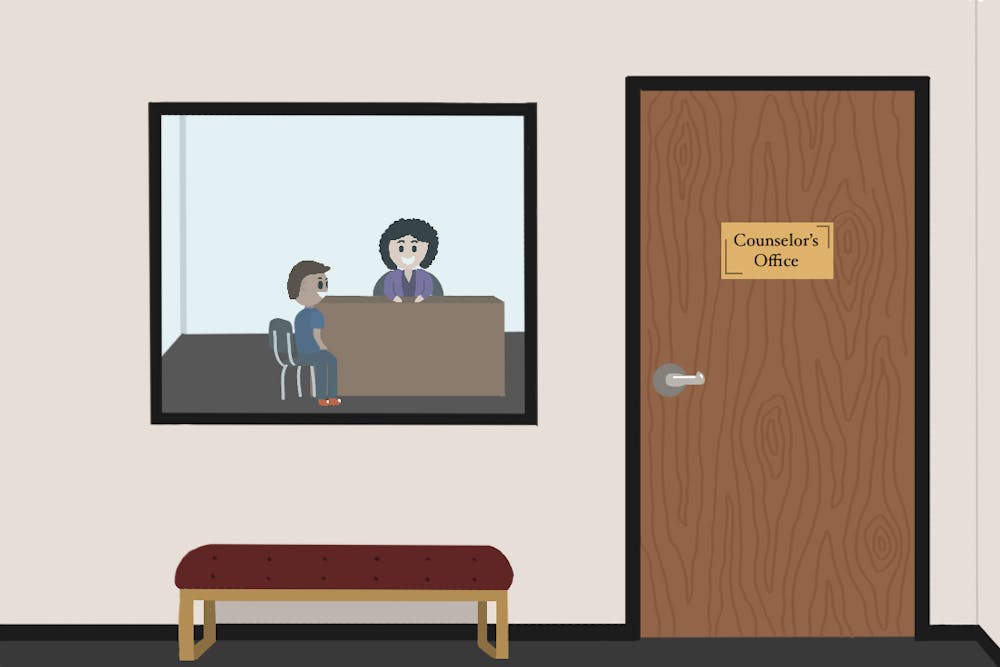ASU Counseling Services provides support resources to help students beyond just mental health.
The University offers free, 24/7 scheduled and walk-in appointments for students year-round, with the option of one-on-one, group or online counseling sessions.
Aaron Krasnow, the associate vice president of Health Counseling and Wellness, said it's important for students' safety to have easy access to counseling services at any time. ASU ensures walk-in appointments are available for any students struggling to receive help.
"If someone is suicidal or they're at risk of harming themselves or somebody else, any delay in care could be life-threatening," Krasnow said. "One of the things that matters for same-day (appointments) is that we're capitalizing on the moment and because we don't know when that moment will come or go again."
All appointments are free for students and have no limit on how many times or how frequently a student attends, Krasnow said. He said the ASU Counseling Services' top priority is to ensure nothing is holding a student back from receiving the resources they need.
"The message that we're trying to get out is: If you want to be seen at 2 o'clock on Tuesday, walk in at 1:55 p.m. on Tuesday and you will be seen," Krasnow said.
Liz Kain, a junior studying criminology and criminal justice, said it is beneficial for students to have access to free, no-commitment services.
"I can just go whenever would help me feel a lot more comfortable," Kain said. "I didn't have to worry about payments and just dealing with all of that. I could just kind of go in whenever I needed to or wanted to."
Krasnow said it is important to look at every aspect of a student's life so they can receive the best services to fit their needs. After the initial meeting, students will be paired with counselors that align with their specific requests, such as a language or religion.
If a student does not find someone through ASU, Krasnow said the counselors "do all the work with them" in finding outside practices.
Krasnow said when counselors speak with students, they take a collaborative approach to find which type of counseling works best, whether it be group or one-on-one sessions. The counseling services look past mental health and provide additional support resources for needs like student finances, housing or accessibility.
"We have to think about us in context, not us in isolation. Everything in your life affects your mental health," Krasnow said.
Iris Hobbs, a sophomore studying criminology and criminal justice, said having free, school-provided counseling services gives students an opportunity they could not have on their own.
"(Therapy is) not a resource that's available to everyone," Hobbs said. "You don't have to tell people because some people have families that don't believe in that kind of thing."
Krasnow said students who seek mental health counseling have already taken a huge step because the hardest part is to reach out for help.
"You just have to walk in or call us or make an appointment, and then that's usually the biggest struggle," Krasnow said. "Remind yourself the first step is not 100 steps, it's just one, but it lowers the pressure on all the other steps."
Other Resources
ASU holds a Wellness Dome Listening Session every Monday and Wednesday from Sept. 9 to Nov. 6. The event occurs from noon to 1 p.m. in the Stauffer Communication Arts Building room B127.
The session invites students, faculty and the community to the ASU Ambisonic Dome to experience the healing power of nature through medical-based research.
The initiative was intended to show how nature influences the relationship between mental health and recovery from medical procedures.
Edited by Senna James, Abigail Beck, Tiya Talwar, Alexis Heichman and Natalia Jarrett.
Reach the reporter at alillest@asu.edu and follow @allylillestol on X.
Like The State Press on Facebook and follow @statepress on X.
Allison is a sophomore studying journalism and mass communication. This is her first semester at The State Press. She has also worked at Arizona PBS and Blaze Radio.




